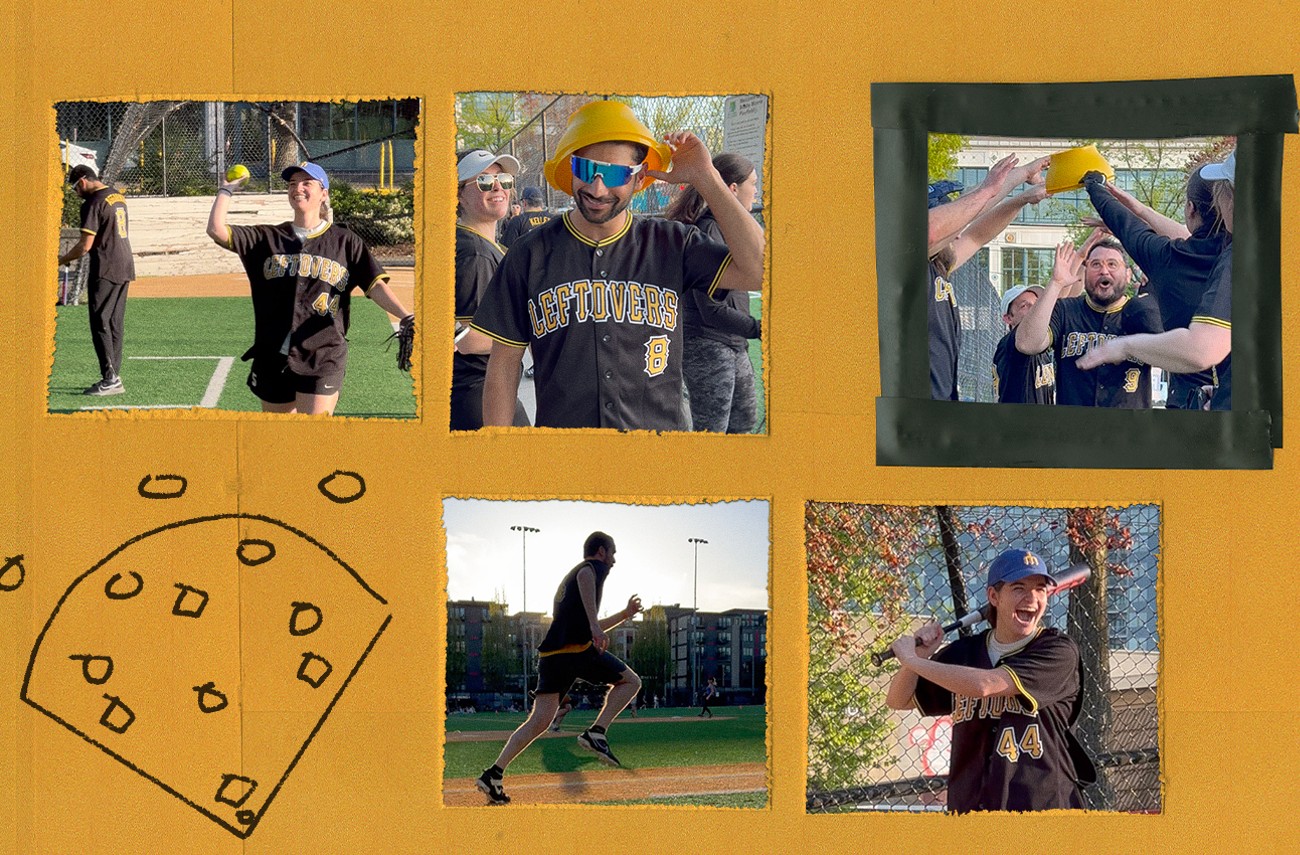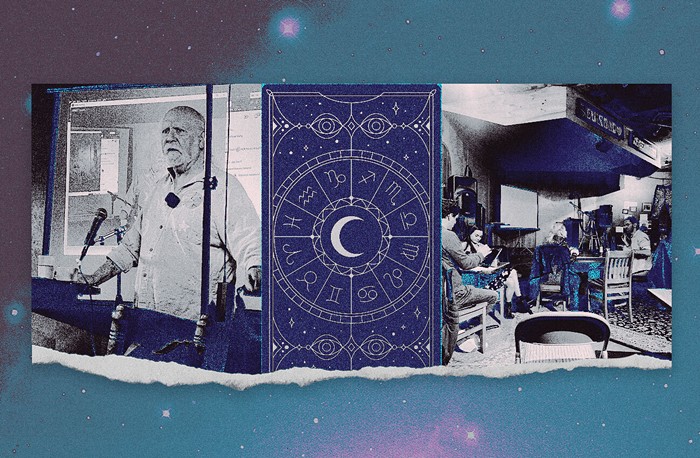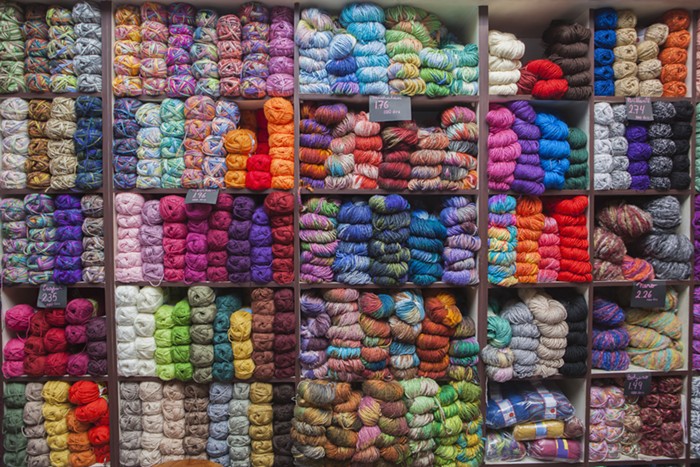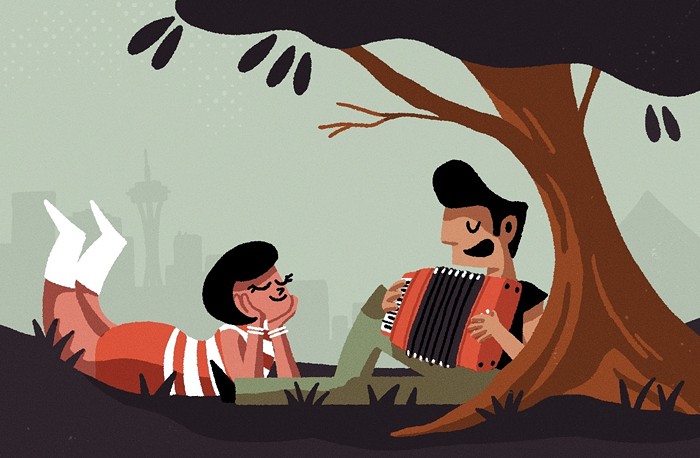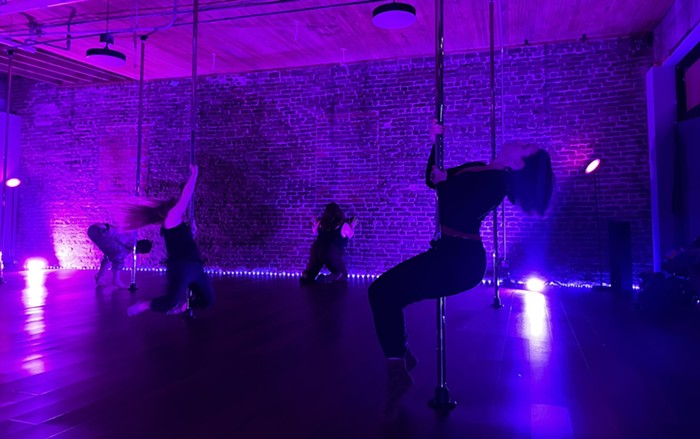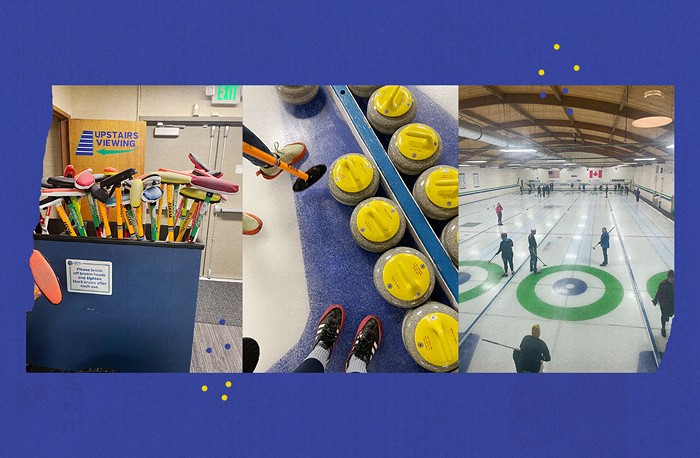On the first 70-degree day of the year last week, I picked my way through a Cal Anderson Park checkered with multi-colored-haired youths sunning themselves on blankets. I passed at least three seemingly identical men in tight shorts and wide-brimmed hats playing croquet, two volleyball games, a panting Samoyed, and a conversation about Virgo placements.
None of these activities were for me today. No, my sunny day destiny lay with the Leftovers Softball Team. The closest I’d come in my life to playing softball was playing kickball. Hopefully, the team was ready. I sure wasn’t.
The softball field carved an empty cone into the mass of bodies hanging out on the turf playfield. I found the Leftovers immediately. I couldn’t miss them.
They all wore matching black jerseys with “Leftovers” plastered across their chests in wasp yellow. Some sported Leftovers-branded hats. All of them arrived upwards of 30 minutes early for their recreational softball game (this is not the norm in my adult rec sports experience). The other team didn’t start showing up until 10 minutes before first pitch, with most trickling in right as the game started (this is more in line with my adult rec sports experience).
“You gotta get the arms warm,” Neal Callahan, 34, told me while he safety-pinned a black square with my name on it to the back of one of his old Leftover jerseys so I could look official. Last night, he’d hand-painted “Graham” and “2” onto a shred of a weed store’s promotional t-shirt. It took two tries to get it right. Callahan takes the Leftovers incredibly seriously.
He founded the team last year with his friend Matt Acosta, 39, when the urge to play softball overtook them. Without enough softball-playing friends to field a team of their own with Underdog Sports, the Seattle adult recreational sports organization, Callahan and Acosta signed up as free agents.
But, then Callahan had an idea. Instead of waiting for a team to draft them, why not make a team with everybody else who didn’t have one? Meet some new people, play some softball? After two hours and a few beers at Ravenna Brewing Company, Callahan and Acosta added everyone on the free agent list “who had good vibes,” as Acosta put it, to a new team. They intentionally did not add anyone who seemed too serious about softball.
This team of strangers became the Leftovers.
The people on the team range in age from 26 to 50; there are software engineers, interior design salespeople, graphic designers, composers, and people who do medical billing; some people have been in Seattle their whole lives; some joined the team after they’d been in the city for a month; their softball experience levels are all over the place—from people who played through high school to those who’d never held a bat. All of the players fucking love this team.
In a post-pandemic world where people yearned for more meaningful connection, the sweet, and often silly Leftovers tied together people who wouldn't normally be friends. Its existence spits in the face of the Seattle Freeze and makes a case for sports where winning isn't everything and success isn't always measured by RBIs.
Welcome to the Leftovers, What's Your Name Again?
Callahan sent a lengthy email after he blindly invited everyone to the team. In it, he explained his idea—a team of strangers playing together—and also they would have sick jerseys. Only one person from the original invitees quit.
During the first game, when most people still hadn’t met, Eric Andres, 32, said it was kind of awkward. He knew he was supposed to be there, but “it didn’t feel right” since he knew no one. After about two innings, he started to learn people’s names. Now—a year later—they have legitimate friendships.
For many people on the team, the Leftovers was the first time they’d met new people since the pandemic hit. Andres signed up for softball because of “pandemic stagnation.” As a remote worker, his day-to-day community is his fiancé and his cat Nacho—it’s enough to “sustain us and make us feel human and whole, but it can get insular.”
Andres believes interfacing with new people helps him grow as a person. Taking the leap and joining this team enriched his life.
“This team is so cool because they are people I wouldn’t have met,” Jason Morcos, 26, said. Morcos moved to Seattle from Georgia during the pandemic and, as a remote-working transplant, didn’t have many friends here. “Now I have 18 of ‘em,” he said.
Cerissa Wilmot, 47, knows it’s dramatic, but she thinks the Leftovers saved her life.
“Coming out of the pandemic, I desperately needed something outside and social,” she said. “I needed something that brought me happiness.”
The team is a family affair for Wilmot. She was late to the game I attended because she was at her daughter’s choir concert. Her daughter has her own Leftovers jersey. Wilmot’s dad was the team’s first fan. He’s usually at every game.
“We’re truly this team of randos and everyone just vibes really well,” Morgan Verbeck, 31, said.
Verbeck lives in Arlington and works in Monroe. She commutes at least an hour to every Leftovers game because it livens up her life outside of work.
“It’s worth the commute," she said.
Part of what makes the team so special is the enthusiasm. And the silliness.
A Little Bit of Baseball Cosplay
From the get-go, Callahan, Acosta, and their friend and fellow Leftover Daniel Caldwell, 32, set the tone for the Leftovers’ culture.
Acosta designed a logo and produced merchandise. He also made jersey patches to award people when they achieve certain stats, hit home runs, or play in particular Leftover seasons, such as the one they played in January in the bitter cold.
“I’m always looking for camaraderie and fun,” Acosta said, showing me the two rows of circular patches on his sleeve. “What would make this more fun? And what would be more swaggy? I love design shit.”
Callahan runs the team’s Instagram. He makes tongue-in-cheek hype videos from game footage. He designs promotional posters advertising their games. “First 10 fans inside the stadium will receive the bathroom code for Rancho Bravo!” “Make sure to arrive early because the first 100 fans to Bobby Morris Playfield will receive a Leftovers branded fentanyl testing strip!”
View this post on Instagram
Monica Tarantino, 26, moved to Seattle from upstate New York last year. Her whole family keeps up with the Leftovers Instagram and asks her about it constantly, she said.
“A lot of moms are following the Instagram,” Callahan said. “Since I’m operating the account, I’m now following everyone’s mom so I’m like, ‘Oh did your mom get a new dog?’”
Caldwell keeps stats. The Leftovers haven’t had a season over .500, yet Caldwell scores every game with one of those baseball scorecards.
“It’s a little bit of a cosplay or a roleplay,” Caldwell said. “It adds to the vibe of being a baseball player. It’s goofy, but it’s fun.”
View this post on Instagram
It’s all about the fun.
Winning Is Overrated
I’ve never experienced an energy level like the Leftovers. First of all, it was so positive. I spent my first inning doing a horrible Cal Raleigh impersonation (both in skill and in ass size) at catcher, but people still congratulated me.
During my first at-bat, Morcos made up a chant from the dugout that rhymed “23 and Me” with “Nathalie,” but I blacked out the specifics because all I could focus on was how foreign the bat felt in my hands. I hit the ball straight up into the air. The pitcher caught it easily. I couldn’t help feeling dejected—I’d convinced myself I’d be great at this without ever having played and I wasn’t.
“Nice contact!” multiple people said on my way into the dugout.
“Ehh, not really,” I said.
“No, seriously, making contact is huge!” they said.
How could anyone feel down on themselves here?
I didn’t do much of anything during my stint at outfield. When I played second base, Audrey Nelson, 28, coached me on where to stand from her position at first base. Nelson’s been playing softball since she was 7 years old. She’s used the same glove for 20 years. (Callahan actually fixed up her glove so she could keep using it. He blew out his knee batting last season, so he picked up glove refurbishing as a hobby.)
Two swings later and the ball sailed to an outfielder. I put my glove up tentatively. He threw it to me. I stepped on second and tagged a runner out.
“Throw it to first!” Somebody—or maybe everybody—shouted. Oh, right, yeah, more to do. I chucked the ball way over Nelson’s head and the runner stayed on base. Shit.
“Hey, that was great,” Morcos, playing shortstop said with a grin. “This next play, make sure to step on the base so we can get this runner out.”
(Logically, I already knew to do this, but, it turns out once I step onto a softball field I lose the ability to think.)
During the next play, Morcos snatched the ball out of the air. He lobbed it to me right as I stepped on the bag. The ball bobbled in my glove, but it stayed put right as the runner touched the base. Another out! And then, the inning was over. Thank god. I was so out of my element.
Every player said some variation of “Great out!” when I entered the dugout.
The Leftovers are objectively bad. We lost the game handily in about an hour. Yet, they’re not down on themselves. Through games, Caldwell’s stats, support from each other, and actual practices, they’re working to improve.
“It’s really cool because we care," Morcos said. "We want to win, but we like each other more than we like winning."
For a lot of the players, this mentality has healed their relationship with softball and baseball.
A Cup-Filler for Everyone
Acosta played baseball until he was 10. He quit because he “didn’t have the guts to try out” for Little League. Yet, he always loved the sport. Andres played Little League, though he described himself as “not a great addition to the team,” moving on to different sports by eighth grade.
Morcos and Callahan both played in high school.
“Like a lot of people who played baseball in high school,” Morcos said, “by the time you quit, you hated it.”
Baseball is a game of failure. It’s a mental sport—especially for teenagers in high school. The best players in the world fail 70% of the time. It’s hard to keep that in mind when you strike out when the bases are loaded, Callahan described. You have to walk back to the dugout in a cloud of failure and see your coach, your teammates, and you can’t do anything about the play—it’s over, that’s it. Also, there’s a lot of yelling.
“When you’re younger it’s a lot of pressure,” Callahan said. “My dad was my coach, so every game felt like a lot.”
During the first or second season of the Leftovers, Callahan noticed he didn’t feel any of that old anxiety while playing.
“I felt so calm,” he said. “There’s zero pressure. I don’t care if I pop out, strike out, or screw this up. I feel very fortunate to play.”
He knows he’ll cherish the sport even more once his knee isn't busted. And he’s created this thing that a whole team of people cherish, too.
“I did my little part, but it wouldn’t have worked if people weren’t as enthusiastic,” he said. “Because of that, it’s been more of a cup-filler for people. Something everyone can look forward to.”
Having left the fear of being bad back in fifth grade, Acosta threw himself into softball. Aside from all the Leftovers swag, he bought bats, masks, gloves, and hitting tees. His wife told him he needed to stop spending so much money on softball stuff. He can’t help it—this is how he is.
The training paid off. During the ninth inning, Acosta smacked the ball past the softball field's boundaries and into the crowd of picnickers. He rounded the bases while the team went crazy.
“Get the mascot! Get the mascot!” a Leftover said.
The team swarmed the sideline as Acosta touched home. He ran through a tunnel of our arms. On the other side, someone placed a bright yellow Tupperware bowl on his head—this was the team’s new mascot and new home run celebration. It’s an homage to the Mariners’ home run celebration trident and helmet except it’s a container for leftover food.
The team cheered and Acosta jumped around with the bowl on his head.
View this post on Instagram
“On any other team I would’ve gotten a high-five,” Acosta said.
Unperturbed by their blowout loss, the team grabbed beers at Sam's Tavern. Maybe they'll get that team next time, and maybe they won't.
Any ideas on which Seattle subculture I should explore next? Want me to tag along with you on your favorite hobby or pastime? Send me tips at playdate@thestranger.com.
